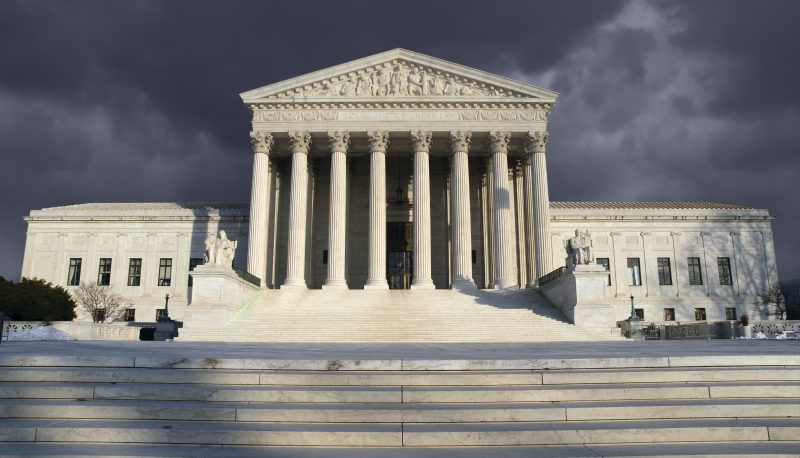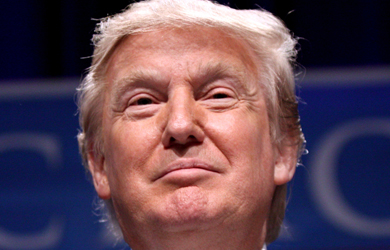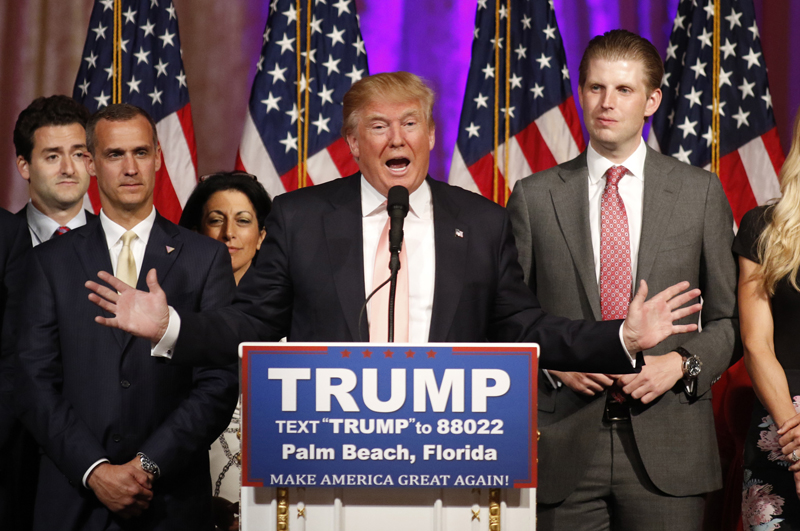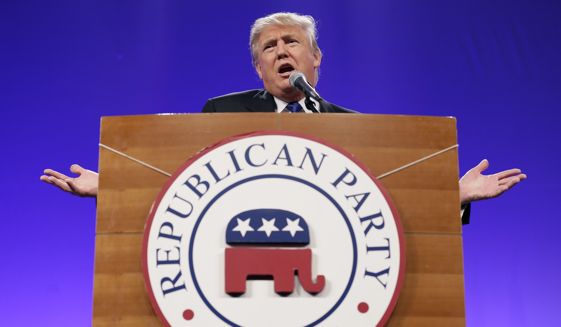President Trump has stated that he will announce his Supreme Court nominee next Thursday, February 2. Reports are that the choice is down to four white male appellate court judges, all of whom are far-right candidates recommended by the right-wing Federalist Society and the Heritage Foundation, and each of whom would threaten all our rights.
Although no one knows for sure who President Trump will choose as his nominee to fill the current vacancy on the Supreme Court, many reports suggest that there are four finalists, all judges on the federal courts of appeal who were nominated by right-wing President George W. Bush. These include William Pryor of the 11th Circuit based in Atlanta, Neil Gorsuch of the 10th Circuit based in Denver, Thomas Hardiman of the 3rd Circuit based in Philadelphia, and Raymond Kethledge of the 6th Circuit based in Cincinnati. All four are far-right judges who would be dangerous additions to the court.
William Pryor: When Bush nominated Pryor to the appellate court, the Atlanta Journal-Constitution called him a “right-wing zealot” who was “unfit to judge,” and Senate Democrats attempted to stop his confirmation via filibuster. As documented by PFAW’s report on the nomination, Pryor’s record as Alabama Attorney General demonstrated his extremism, including calling Roe v. Wade the “worst abomination of constitutional law in our history”—worse even than decisions upholding slavery and mass detention of Japanese-Americans in World War II. He argued that states should be able to criminalize homosexuality, that people should not be able to protect their rights against states under the Violence Against Women Act and the Americans with Disabilities Act, was hostile to race discrimination claims, and even criticized the New Deal.
As a judge he has, among other things, helped reverse a $1 million discrimination verdict against a major corporation, gutted federal statutory protections for older workers, wrote opinions upholding Alabama’s racially discriminatory gerrymander and a restrictive Georgia voter ID law, threw out a challenge to a damaging exemption to Clean Water Act requirements, and wrote an opinion upholding an Orlando ordinance that prohibited churches and other groups from feeding the hungry in public areas.
Neil Gorsuch: Although Gorsuch’s record prior to becoming a judge was not nearly as problematic as Pryor’s, his record as a judge and a lawyer make clear his extreme views. As a judge, he has consistently ruled against workers and in favor of big corporations. For example, he argued in dissent that the court should overturn a Department of Labor fine against a company whose failure to train a worker caused his death, and wrote an opinion holding that federal law did not even protect the in-house counsel of a state fire marshal from sex discrimination.
He has harmed women’s reproductive rights through joining opinions that both for-profit companies and non-profits can refuse to provide contraceptive coverage to women under the ACA. He also argued in dissent that the Governor of Utah should be able to defund Planned Parenthood there as a result of false videos purporting to show other Planned Parenthood affiliates negotiating the sale of fetal tissue. As an advocate, he has tried to restrict or eliminate one of the most effective legal tools against corporate securities fraud, class actions against corporations. And he has gone even further to the right than Justice Scalia in arguing for the elimination of the so-called Chevron doctrine, under which courts defer to administrative agency interpretations of ambiguous statutes, which has been extremely important on environmental, job safety, and other issues.
Thomas Hardiman: Since joining the court of appeals, Hardiman has clearly shown his far right views. In several cases, he wrote opinions upholding humiliating strip searches of people charged with even minor offenses. He suggested in one case that citizens do not even have an enforceable right to videotape police officers at a traffic stop.
In a number of dissents, he has disagreed with decisions of his colleagues protecting individual rights and would instead have harmed such rights. For example, he argued in one case that the Philadelphia Airport could ban an NAACP billboard, even though the majority in the case found the ban unreasonable. In another, he would have allowed a school district to ban middle school students from wearing bracelets designed to increase breast cancer awareness. In another, he tried to significantly limit federal legal protections for children with learning disabilities and their parents; as the majority explained, Hardiman’s view would have allowed school districts to “hold parents hostage” on what is appropriate education for their children.
Raymond Kethledge: The record of Judge Kethledge on the appellate court also shows extreme views. He wrote a concurring opinion in one case that upheld an Ohio Republican party challenge that would have prevented up to 200,000 votes from being counted in the 2008 election. That decision was quickly reversed by the Supreme Court.
He is generally hostile to the rights of workers, as shown by several dissents in which he disagreed with the majority and would have sided with employers. For example, in one case, he argued that volunteer firefighters who get substantial pay when they respond to calls should not even be protected by the Family and Medical Leave Act and the Fair Labor Standards Act. In another, his view would have prevented a worker whose employer had made negative comments about his being there for so long from having the opportunity to prove an age discrimination claim. In another, he would have blocked a worker from bringing a Title VII retaliation claim because the alleged retaliation was too long (five months) after the first complaint was lodged, even though they continued over the following months.
Writing for the majority of a divided court, he ruled in one case that the Sierra Club and several individuals could not even bring a lawsuit challenging an Ohio official for failing to enforce emissions regulations under the Clean Air Act; the dissent noted this was contrary to precedent within the circuit.
More to come soon on Trump’s upcoming nomination to the Supreme Court, a critical issue for all of us.








